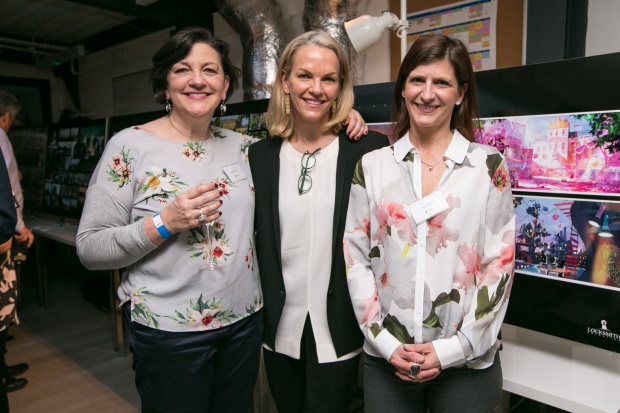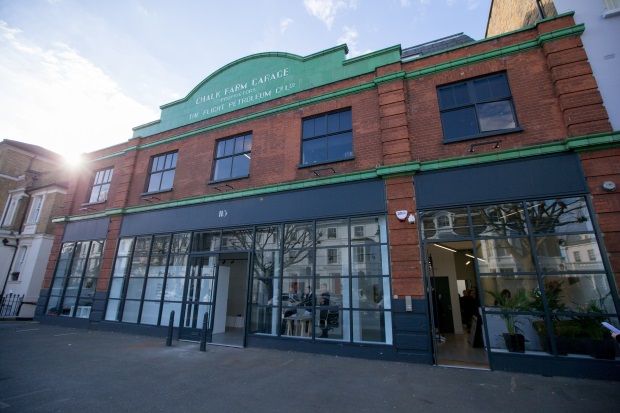How Locksmith is bringing top end movie animation to London
Locksmith Animation aims to give the UK a big animation studio to rival the likes of Pixar and DreamWorks. We took a look...
By the time Sarah Smith was doing interviews for her debut feature as director, Arthur Christmas, it turned out that she’d already left the company – Aardman – that released it. Furthermore, Julie Lockhart, producer on many Aardman films, had also left the company. It turned out the pair had a plan, that’s gradually come together over the past years. That plan has led to what’s now known as Locksmith Animation.
The genesis of Locksmith lay in a question: why hasn’t London got an animation studio that could go toe-to-toe with the Pixars, DreamWorks and Blue Sky Studios of this world? Smith and Lockhart pursued the idea, and eventually – in partnership with Elisabeth Murdoch – formally launched Locksmith in 2014. It was, at that stage, a studio without its full working premises, and a studio partner was still being sought. But, fuelled in large part by the skill and sheer willpower of Smith, Lockhart and their team, Locksmith opened the doors of their new premises last Monday to let the world see what they’d been up to.
Turns out, quite a lot.
Ron Going Right

L-R: Sarah Smith, Elisabeth Murdoch, Julie Lockhart
Locksmith – who originally were on the verge of inking a deal with Paramount in 2016 before signed a three-picture deal with Fox in 2017 – is already over six months down the line on its debut animated feature, Ron’s Gone Wrong. It’s a story of a digitally-connected bot toy, that becomes the new must-have gadget for kids. 11-year old Ron, though, will be getting one that doesn’t work, and the film’s underlying message is what friendship means in a world dominated by algorithms, social media and screens.
For Smith, who’s co-writing the script with longtime collaborator Peter Baynham, this goes to the heart of the kind of films she wants Locksmith to make. As she explained at the launch event, she wants films that talk to kids about the world they’re in. Kids are watching The Walking Dead, she argues, and whilst it doesn’t sound like she’s planning to make a horror anytime soon, she does want Locksmith’s movies to reflect and understand what a younger generation are actually engaging with, rather than pretending otherwise. “We want to make animated films that relate to our children today”, Smith said.
You can see that ethos, going back, in Arthur Christmas. Amongst the Christmas jumpers and clever comedy of that film, there’s also a sense of a real world to it. That life can be tough, and not in an artificial way.

Smith and Lockhart briefly outlined their slate on Monday. The second film, for instance, will be a sort-of-superhero movie set in the UK. Smith teased that it’ll be “kick-ass” (small k), “irreverent”, following a bunch of girls, a musical, and set in London. Film three, meanwhile, will be a movie about the “end of times”, where kids get to take over the Earth, and do a far better job of looking after it.
The studio also has an option on Lissa Evans’ hugely successful book Wed Wabbit. It wasn’t explicitly said where that fitted into the slate, and if that’d form part of the aforementioned projects. It does seem clear, with the significant investment in infrastructure, that Locksmith Animation has no intentions of stopping once it’s delivered its first three films.
The office, incidentally, is worth mentioning. At a point where many in London VFX houses are expressing concerns that more of their work is being outsourced to cheaper production houses in India, Locksmith Animation has made a statement of intent by setting up in Primrose Hill, a five minute tube ride from Euston Station.
Its office houses around 70 staff across several floors, and the walls were adorned with art from Ron’s Gone Wrong, complicated-looking schedules, with any sign of further top-secret things firmly squirrelled away. The firm will be delivering the movie at the end of 2020, and chatting to assorted staff around the studio, they’re deep into breaking the story, and early sequence work. Furthermore, on the ground floor of the building is Elisabeth Murdoch’s Freelands Foundation charity, which aims to encourage young people to embrace the arts. Already, youngsters working with the Foundation have been around Locksmith’s offices, and there’s a keenness to not only inspire the next generation of artists, but also to give them somewhere to work.
Geography

London isn’t the cheapest place in the world to site an animation studio, but its feels important to Locksmith. As Smith and Lockhart pointed out, they’ve been able to attract talent from around the world, and from pretty much every major animation feature company.
Furthermore, the firm has inked a deal with visual production house Double Negative (located just up the road) – regarded as one of the best effects houses in the world – to partner on creating the physical animation for its movies. With an aggressive development slate of one film every 18 months or so from a standing start, Locksmith’s pipeline already gives the impression that it’s filling up.
All of this is happening at a time when feature animation in the UK remains – the brilliant Aardman aside – quite muted. Whilst there’s no shortage of animation talent in the UK, few have expressly positioned their company’s base here. Sure, there’s a rumoured Spice Girls London-set superhero animated movie in the works (that’s not a Locksmith project, incidentally), and Elton John and David Furnish’s Rocket Pictures outfit is ostensibly London-based (although on Gnomeo & Juliet, a good chunk of the work was done in Canada). But to invest heavily in a London base, announce a slate of projects, ink a deal with a movie studio (one that’ll be unaffected by the forthcoming Disney deal incidentally, should that happen), and already be months into production on a first feature? That’s some going.
I walked away from Locksmith encouraged on many fronts, and glad that the place exists, and the people within it. The proof, of course, will be in the movies themselves, and the next year or two will firmly put the new studio to the test. But the ethos, the sticking their neck out, and the determination to do something the UK isn’t really doing is really something. I for one will be watching the Locksmith story with interest.